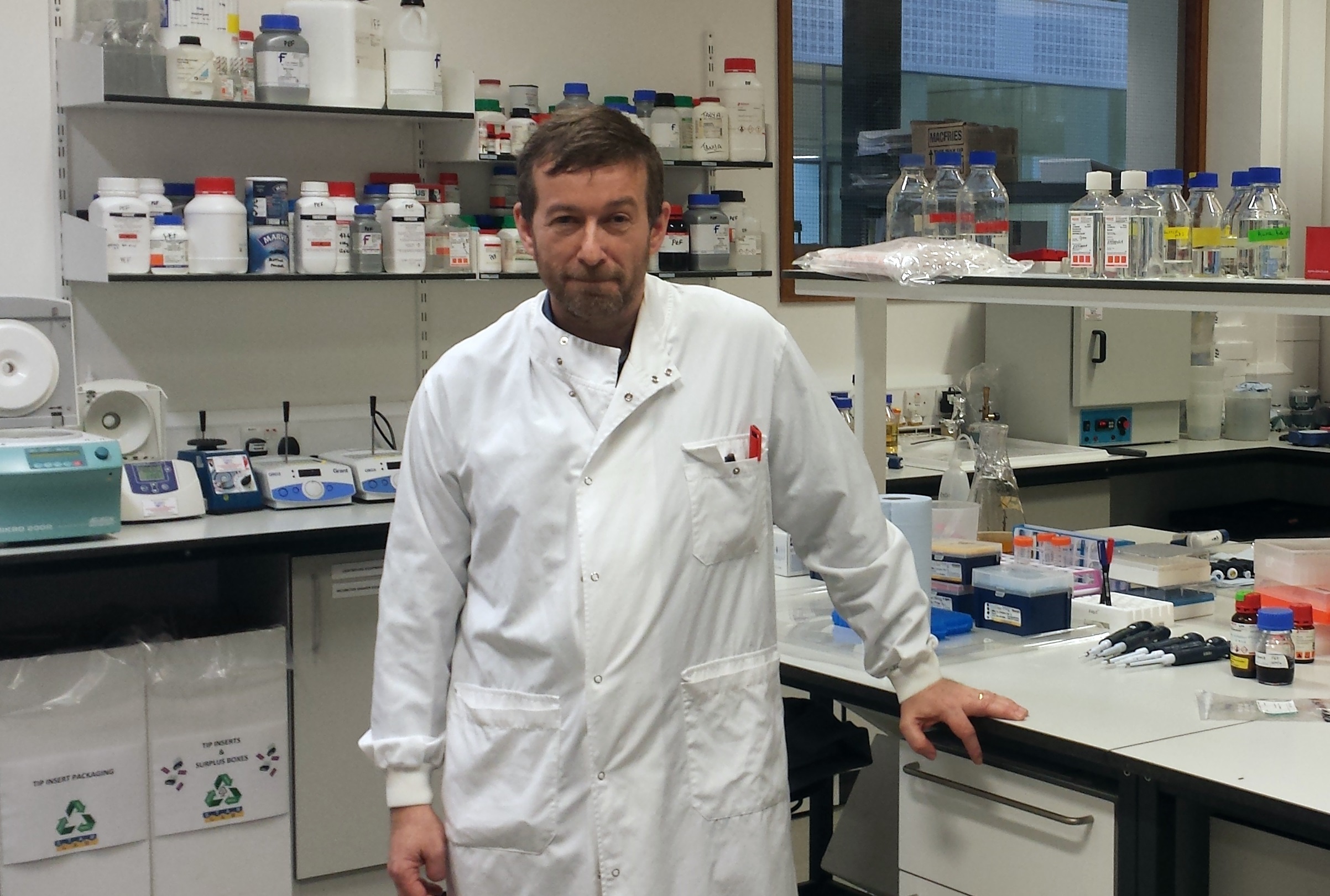
Dr Eddie McKenzie, from Dumbarton, is part of a team of experts working non-stop to find a way to stop the spread of the deadly mosquito-borne disease.
They began developing a vaccine after a link was noted between the virus’s arrival in Brazil last year and a surge in the number of babies being born with serious defects.
Eddie, 50, says he was motivated to become a scientist by a rollicking he received from chemistry teacher Mr McFall at St Patrick’s High in Dumbarton in the 1980s.
He said: “I got 75% in an exam and was feeling rather smug until Mr McFall strode up to my desk and asked me why I was smiling.
“He then turned over the paper to reveal a 25-mark question on the last page I hadn’t answered.
“My heart sank and I felt like a clown. I still cringe when I think about it today.
“Since then I make a point of checking everything. That classroom shaming drives my research today.”
After leaving school dad-of-three Eddie went on to do a PhD in biochemistry at Oxford. He is now a senior manager at Manchester University, where the Zika vaccine research is being carried out.
Mr McFall’s career also took a twist in the 1980s, when he left teaching to become an MP. As chairman of the Treasury committee, he later gained a reputation as the “scourge of the bankers” for his grilling of finance bosses during the credit crunch.
Eddie said: “I watched Mr McFall questioning the banks and knew exactly how they felt.
“It took me back to my old chemistry class at St Pat’s. If anyone was slacking or trying it on, they got it.”
Mr McFall, who now sits in the House of Lords as Baron McFall of Alcluith, admitted to being touched by Eddie’s tribute.
He said: “What a great way to be remembered by a pupil. I have to be honest, I was known as the classroom hairdryer back then.
“If someone bright was slacking I wasn’t slow to tell them. I remember Eddie as a pupil who was capable of going on to do some great work.
“His dad George was a painter and decorator in Dumbarton back then. I’m happy that the bawling worked. I wish him all the best for this vaccine breakthrough.”
Eddie and his fellow scientists hope to make the breakthrough with Zika within 18 months.
They are working with a smallpox virus derivative that could also be modified to protect against other infections.
The Zika virus was first identified in Uganda in 1947 but only hit the headlines after a major outbreak in South America.
In February the World Health Organisation declared it a global health emergency.
READ MORE

Enjoy the convenience of having The Sunday Post delivered as a digital ePaper straight to your smartphone, tablet or computer.
Subscribe for only £5.49 a month and enjoy all the benefits of the printed paper as a digital replica.
Subscribe